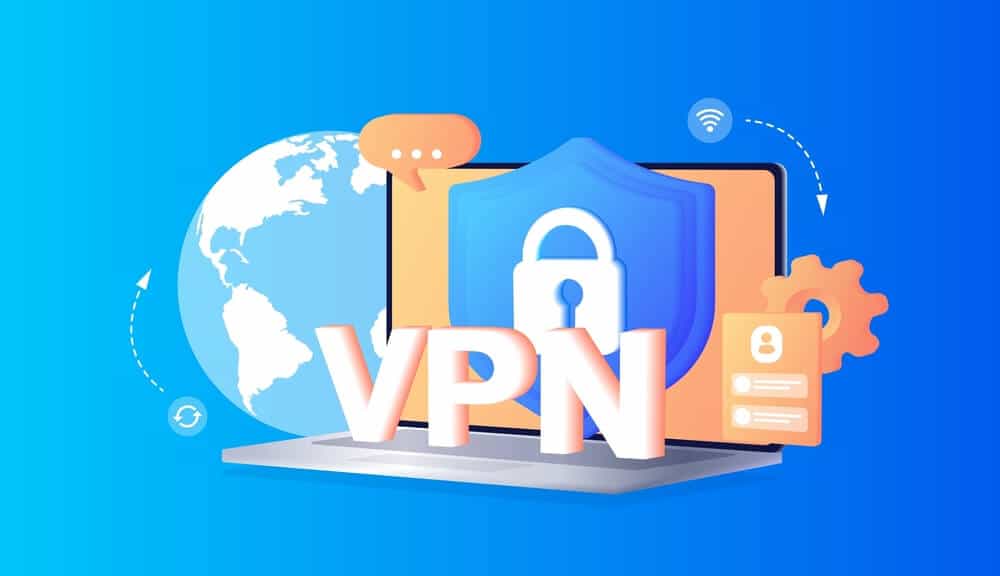A VPN, or virtual private network, is a service that keeps your internet connection and privacy online. It makes a sheltered, encrypted tunnel for your data to travel through, making it tough for anyone to stop or see your activity. This can be helpful when using public Wi-Fi networks, which can be less safe than your home network.
Are you here? Let’s go see the use of a free VPN. There are many benefits to a free VPN. It can secure you from all the trouble of the local WiFi. If you use a VPN, then you are safe. Unknown can’t hack you or see your activity when you are online.
Geo-restrictions are limitations on the content you can access based on your location, which you can get around with the aid of a VPN. Accessing websites, streaming services, and other content that is unavailable in your country can be made easier with this.
Using a VPN for Web Browsing
Accessing geo-limited content and educating about security and privacy are just a few benefits of using a VPN while web browsing. Now we share how VPNs can protect us.
Improved Secrecy:
Masking IP addresses: Your internet service provider (ISP), websites, and advertisers will find it more difficult to track your online activities and determine where you are when using a VPN to hide your true IP address.
Enhanced Protection:
Phishing and malware protection: Some VPNs come with built-in protection against phishing and malware, which blocks malicious websites and stops you from unintentionally clicking on links that could compromise your device or steal your personal data.
Obtaining Geo-Restricted Content Access:
Bypassing Geo-Blocking: Websites, streaming services, and other earners of online content often impose geo-limits, which you can get around with the aid of a VPN. Content that might not be available in your country can be retrieved by connecting to a VPN server in a different location.
How a VPN Can Keep You Safe Online
Preserving our online security and privacy is more crucial than ever before. VPNs can help with that. With the help of VPNs, you can protect your online activities and data from prying eyes by using an encrypted, secure tunnel.
Secures Public Wi-Fi: Your data is susceptible to interception on public Wi-Fi networks since they are frequently less secure than your home network. Your data will stay encrypted and secure if you use a VPN when using public Wi-Fi. Stops Data Tracking: VPNs stop advertisers and websites from following your online activities and creating profiles about you. This supports your right to privacy and autonomy over your personal information.
How to Use a Free VPN Safely
Free VPNs can be alluring, but you should use caution when utilising them because there may be risks and trade-offs involved. This is a how-to guide for using a free VPN securely:
- Choose a reputable VPN provider:
- Understand the VPN’s Logging Policy:
- Check for encryption protocols:
- Limit data usage:
- Be cautious with personal information.
- Beware of Third-Party Ads:
- Monitor Your Device for Malware
- Consider paid VPN alternatives:
How to choose a VPN
Choosing the appropriate virtual private network (VPN) is essential to protecting your security and privacy when using the internet. When selecting a VPN, keep the following important factors in mind:
- Security and Privacy:
- Speed and Performance:
- Compatibility and Features:
- Pricing and Customer Support:
- Trustworthiness and Reputation:
How can I Make Sure My VPN is Working Properly?
How do I check if my VPN is operating correctly? Ensuring the proper operation of your VPN is essential to protecting your online privacy and security. Here are some techniques to make sure your VPN is functioning properly:
- Check your IP address.
- Test for DNS leaks:
- Check for WebRTC leaks:
- Check your VPN status.
- Test your internet speed.
Conclusion
Free VPNs can provide some security and privacy protection, but they also have limitations and potential drawbacks. Remember that there is a trade-off between cost-effectiveness and potential privacy risks when using a free VPN. While they can provide some basic protection, users who require fast, dependable connections or who have serious privacy concerns may find them inappropriate. If you rely heavily on your VPN and require more dependable speeds, unrestricted data, and enhanced security features, consider upgrading to a paid VPN service.


